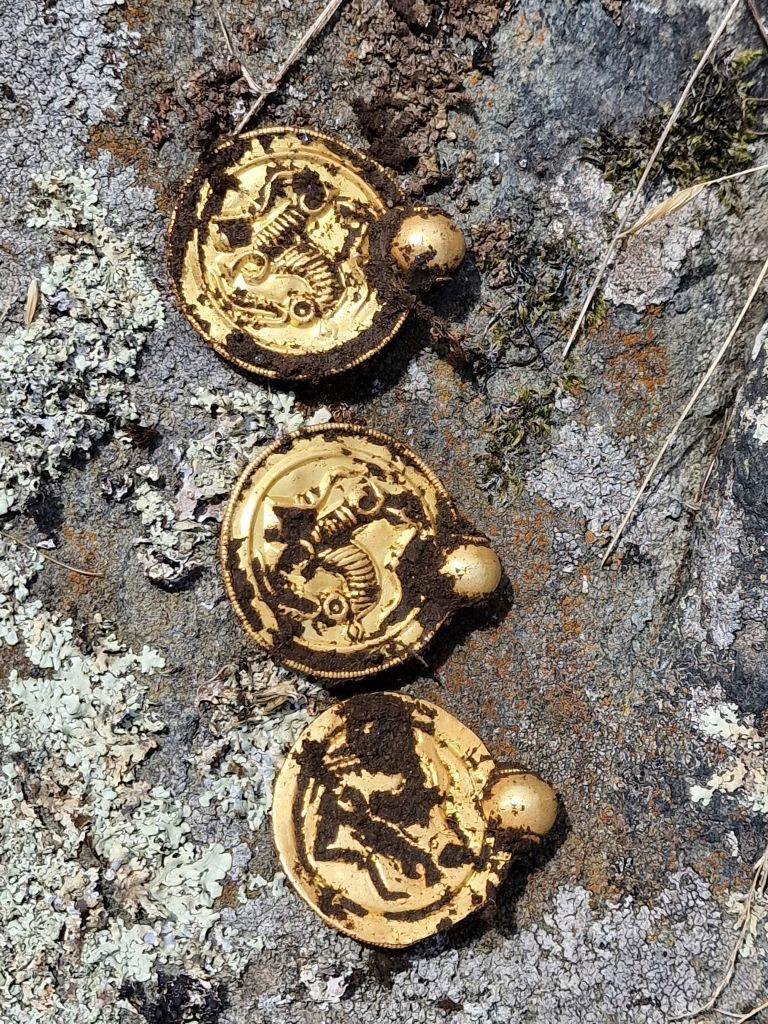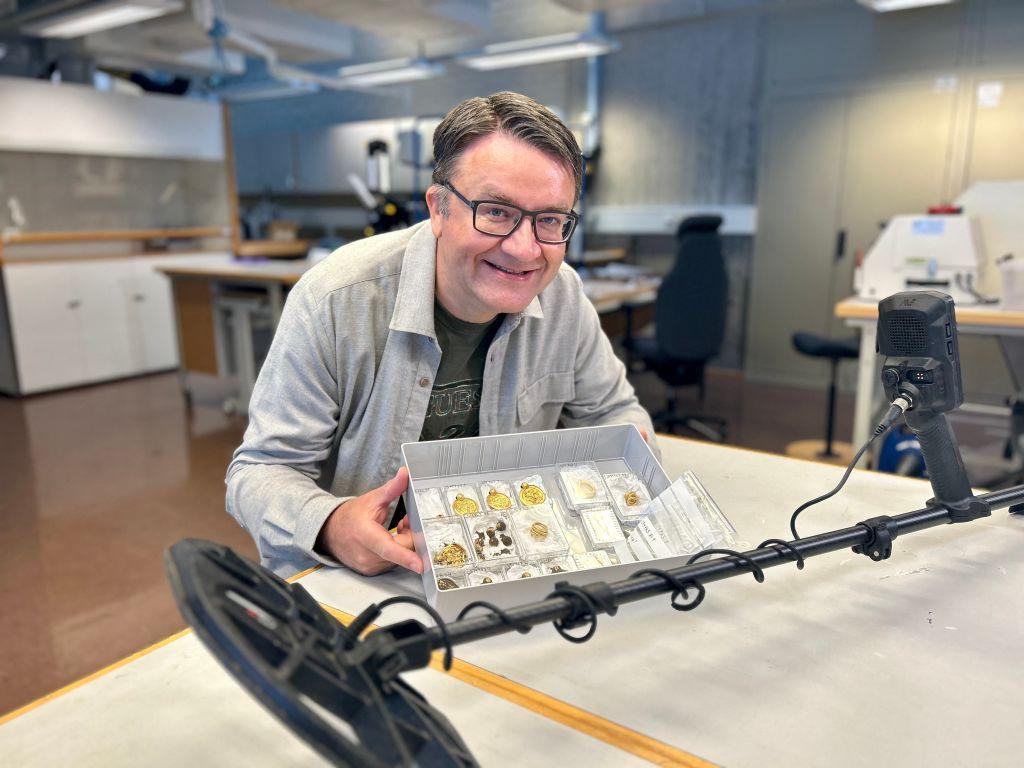
A Norwegian Man Stumbled Upon A Trove Of Gold Dating To The Early Middle Ages, Including A Rare Pendant Depicting The Norse God Odin
Erlend Bore, aged 51, from the city of Stravanger, was going for a walk on the island of Rennesøy when his metal detector began beeping. Although his first thought was that he'd chance upon foiled chocolate coins, Bore alerted archaeologists who managed to locate and unearth three gold rings as well as nine gold medallions and ten gold pearls that were originally strung together on a necklace.
These flat, circular pendants are known as bracteates and are imprinted on one side with a rare motif representing the Norse god Odin healing a horse that is depicted in visible distress, with a lolling tongue and twisted legs.“The horse symbol represented illness and distress, but at the same time hope for healing and new life,” said professor Sigmund Oehrl.

Coin-like gold pendants that are part of a gold treasure found in August 2023 by an amateur archaeologist with the help of a metal detector on the island of Rennesoy in Stavanger. Photo by Erlend Bore/NTB/APF via Getty Images.
Altogether the hoard weighs around 3.5 ounces, making it“the gold find of the century in Norway,” according to Ole Mason who directs the nearby University of Stravanger's Museum of Archaeology where the coins will now be kept.“To find that much gold all at once is extremely unusual.”
It is believed that the precious jewelry, the design of which evinces considerable skill, must have once belonged to a high status individual that experts believe was most likely a woman.
Håkon Reiersen, an archaeologist at the museum, said that the gold was likely buried in the Migration Period, an era between 400-550 C.E. marked by widespread migration across Europe.
“Given the location of the discovery and what we know from other similar finds, this is probably a matter of either hidden valuables or an offering to the gods during dramatic times,” said Reiersen.
Objects discovered in Norway that were made before 1537 are considered to be public property and must be handed over to the state, but Bore and the relevant landowner can expect to receive an award.
More Trending Stories:
A German Museum Employee Has Been Caught 'Shamelessly' Swapping Original Paintings for Fakes to Fund His Lavish Lifestyle
The British Museum Has Launched a Website Seeking the Recovery of 2,000 Objects That Were Stolen From Its Collection
Los Angeles Artist Hayley Barker's Lush, Transfixing Landscapes Are Autobiographical Tributes to Nature
Oops! Bill Acquavella Just Blew the Lid on a Multi-Million Basquiat Slated for Christie's Auction in November
Another A.I.-Generated Artwork Was Denied Copyright Protection, Adding a New Knot to the Complexities of Creative Ownership
A New Show at MCA Denver Reins in the Myth of the Cowboy With Works by John Baldessari, Amy Sherald, and More

Legal Disclaimer:
MENAFN provides the
information “as is” without warranty of any kind. We do not accept
any responsibility or liability for the accuracy, content, images,
videos, licenses, completeness, legality, or reliability of the information
contained in this article. If you have any complaints or copyright
issues related to this article, kindly contact the provider above.


















Comments
No comment